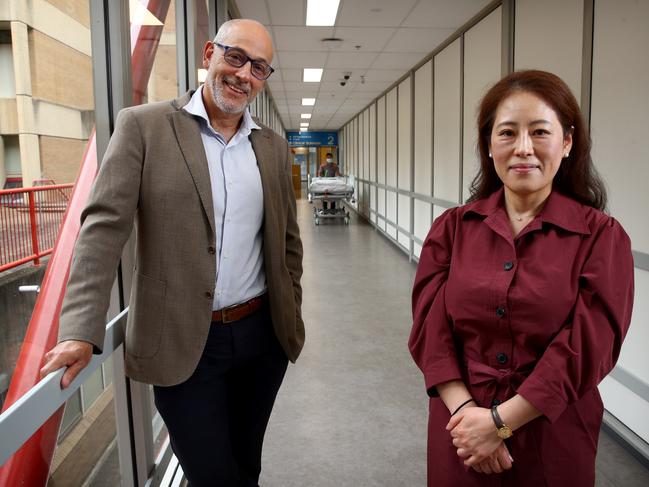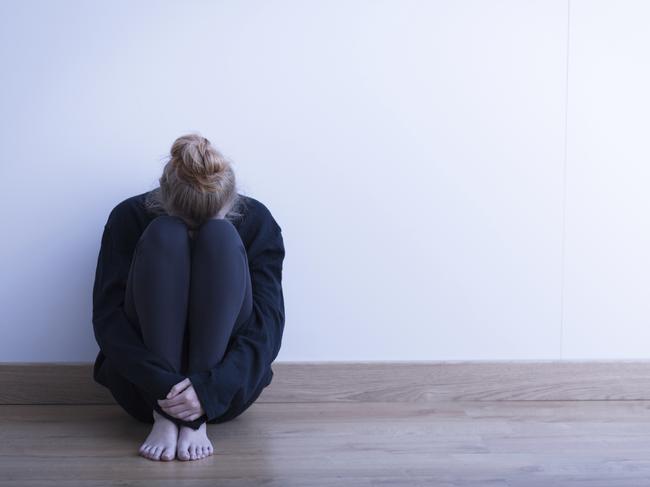Eating disorders on the rise in Western Sydney multicultural communities
Halal menus, bilingual social workers and meal plans with food from around the world. One Sydney eating disorder clinic is smashing the myth illnesses only plague Anglo Australians.
NSW
Don't miss out on the headlines from NSW. Followed categories will be added to My News.
The long standing myth that illnesses like anorexia and bulimia only plague Anglo Australians has been smashed by a clinic in Sydney’s west that’s using halal food menus and multicultural social workers to radically change the life of eating disorder patients.
Westmead Adolescent and Young Adult Medicine Clinic head Dr Michael Kohn said the centre’s rare multicultural approach to treating eating disorders has been 20 years in the making.
“In 2000, we found there were two quite large cultural communities from whom young people weren’t coming through, Pacific Islanders and Arabic communities. Of course, they also get eating disorders, but they weren’t coming for help,” he said.
The centre has since created a culturally sensitive approach to treatment to allow those missing out on help to come forward.
The clinic adapts food plans to include traditional foods the patient is used to eating and has engaged numerous multicultural social workers to overcome any language barriers.

Mr Kohn said the number of patients visiting the Western Sydney clinic has doubled since the pandemic erupted in April – laying bare the fact that eating disorders can impact people of all cultural and class backgrounds.
“Western Sydney is a microcosm of all cultures around the globe… We’ve been seeing a spike in patients coming in,” he said.
“Our focus is quite unique and we look at renourishing the young person and support them to do that through their home and food culture and then we refer them back in the community to have family-based treatment.”
And the changes are working – with the clinic’s reported results comparing far better than leading eating disorder units across the globe.
Korean-Australian social worker Heejin Kim works at the clinic has been bridging the gap between young people with eating disorders and their immigrant parents who struggle to understand the treatment in Australia.

“No one is immune to eating disorders, especially in the western world. Migrant families are experiencing eating disorders emerging after living in Australia that they were not aware of in their previous countries,” she said.
“Many parents may focus on working a lot to secure their financial situation for the sake of their children and family, but while they are missing the dinner table a lot as a family, eating disorders steal our vulnerable young people.”
Ms Kim said it was paramount that support services were available in different languages to help those who fall through the cracks.
“Family-based treatment is the most successful tool for children and young people with an eating disorder. But 98 per cent of family-based treatment is in private practice,” she said.

“Many migrant families cannot afford to pay for this. So they keep coming back to readmission to hospitals because they did not have any alternative follow up therapy after the first admission.”
Indian-Australian Tanya Batra knows exactly what it’s like to not be able to communicate her struggles with her immigrant parents.
The fashion designer and young business owner had anorexia and is currently recovering from bulimia.
“Most ethnic communities are ashamed of eating disorders and the way our parents have been brought up is that we don‘t talk about such things and we want to overlook it,” the 21-year-old said.
“I think the biggest difficulty is if a girl or a boy wants to come out about their eating disorder. they won‘t be able to as it’s so frowned upon.”

Ms Batra, who lives with her parents in Sydney’s West, said she struggled to find meal plans for her recovery which included traditional Indian dishes her mother could cook.
“I had to get a nutritionist from India that would plan my meals accordingly so that my mum can also help me and be a part of the treatment and feel included,” she said.
“As a person who grew up eating those foods, I wanted to be able to recover and eat those same familiar foods too. There is definitely a lack of nutritionists being able to work with people’s culture.
“My parents still struggle to understand what bulimia is.”




